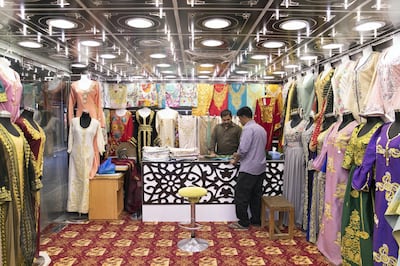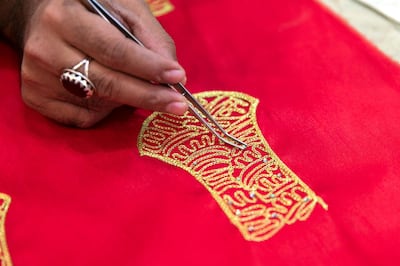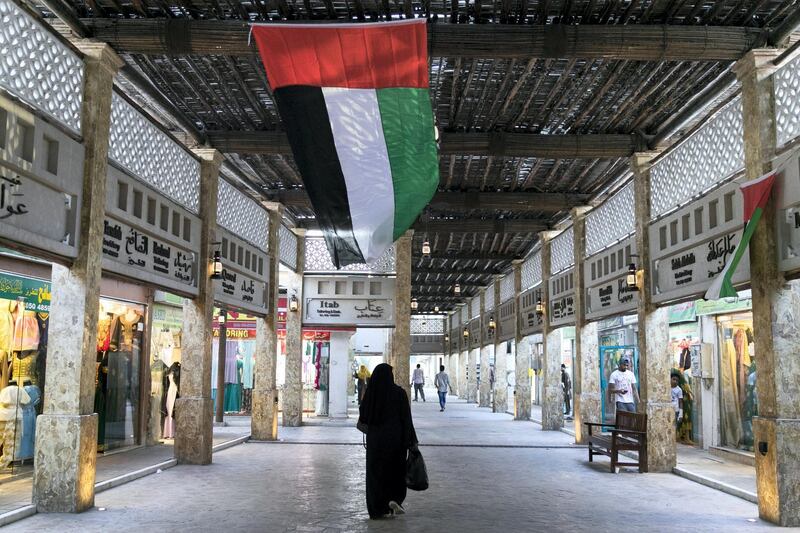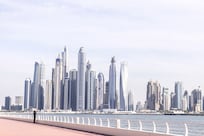A short walk from downtown Ajman lies what is probably the emirate’s oldest souq.
Built in the early 1950’s and sympathetically restored several years ago, parts of its more traditional architecture still remain intact.
Venturing inside can feel like a step back in time as surrounding modern high-rises and office blocks disappear from view.
In their place, visitors to Saleh souq are greeted with high, wide hallways with roofs made of palm fronds, as well as exotic smells of spice and incense.
“People come from Egypt, Iraq, Bahrain, Kuwait and many other Arab countries come to buy things here,” said Pakistani Mohammed Shahid, 42, who opened his shop “Al Molouk”, meaning Kings, 23 years ago.
“People are attracted by the souq’s style and the fact that they can find the best deals as well as unusual items they can't find in malls.”

Saleh souq, located in Al Nakheel opposite the Ajman museum, started life as just a small collection of 10 or so shops.
Today, more than 80 boutiques welcome customers late into the evening.
Shoppers are spoiled for choice with a huge variety of items for sale; from elaborately embroidered clothing to handmade, leather goods.
____________
Read more:
Will the 'Amazon effect' take hold in the Middle East?
E-tailers battle for market share driving innovation in online shopping
Alabbar’s Noon.com launches operations in Saudi Arabia
____________
Benches for weary visitors sit beneath 20ft-high marble columns and Emirati flags flutter in the light breeze.
“The place was first built by an Emirati man named Saleh, that’s why it’s called Saleh souq,” said Mohammed.
“It started with no more than 10 shops but since the municipality renovated the place the number has grown larger and larger.”
The souq was renovated through a Dh7m budget by provided by the Ajman municipality.
Prior to its facelift areas had become rundown, with sections even left without a roof to protect shoppers from the heat.
In 2016, workers began lining the souq's long alleyways with coral stone, a traditional material still used in build projects in the UAE today.
By the end of 2017, engineers had completed the souq's extensive new infrastructure, including new shops.
Other facilities, including the building of an outdoor theatre and walkways to link the souq with the city's corniche area are also planned, said Mohammed Al Muhairi, Ajman's head of engineering and infrastructure.
Officials hope the work will provide a further boost to numbers of tourists keen to visit the emirate.

Already, visitors are coming from far and wide to soak up the souq's more traditional feel.
And during the holy month of Ramadan, customer numbers double or even triple as families seek out customary presents to give visiting relatives.
Mohammed Anwar, 38, said he had helped his father run his shop as a youngster and had taken over the business when he died.
"My father opened our shop in 1980 and I used to help him," he said. "We had many, mostly women customers coming from neighbouring countries around the UAE to buy from the souq.
"The difference in price is an attraction as well. Customers know that they can negotiate the price here.
“And they know that what they can get for Dh1,000 outside the souq, they can find here for probably half the price.”







